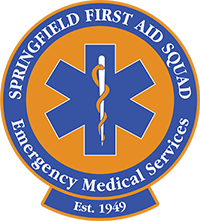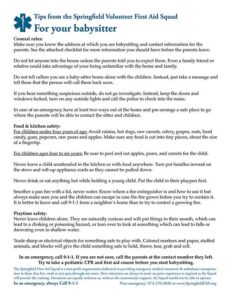Tips for your babysitter
General rules
Make sure you know the address at which you are babysitting and contact information for the parents. See the PhoneABabysitter.com Babysitter Information Form for more information you should have before the parents leave.
Do not let anyone into the house unless the parents told you to expect them. Even a family friend or relative could take advantage of your being unfamiliar with the home and family.
Do not tell callers you are a baby-sitter home alone with the children. Instead, just take a message and tell them that the person will call them back soon.
If you hear something suspicious outside, do not go investigate. Instead, keep the doors and windows locked, turn on any outside lights and call the police to check into the noise.
In case of an emergency, have at least two ways out of the home and pre-arrange a safe place to go where the parents will be able to contact the sitter and children.
Food & kitchen safety
For children under four years of age: Avoid raisins, hot dogs, raw carrots, celery, grapes, nuts, hard candy, gum, popcorn, raw pears and apples. Make sure any food is cut into tiny pieces, about the size of a fingertip.
For children ages four to six years: Be sure to peel and cut apples, pears, and carrots for the child.
Never leave a child unattended in the kitchen or with food anywhere. Turn pot handles inward on the stove and roll-up appliance cords so they cannot be pulled down.
Never drink or eat anything hot while holding a young child. Put the child in their playpen first.
Smother a pan fire with a lid, never water. Know where a fire extinguisher is and how to use it but always make sure you and the children can escape in case the fire grows before you try to contain it. It is better to leave and call 9-1-1 from a neighbor ?s home than to try to control a growing fire.
In an emergency, call 9-1-1.
If you are not sure, call the parents
at the contact number they left.
Try to take a pediatric CPR and first aid course
before you start babysitting.
Playtime safety
Never leave children alone. They are naturally curious and will put things in their mouth, which can lead to a choking or poisoning hazard, or lean over to look at something which can lead to falls or drowning even in shallow water.
Trade sharp or electrical objects for something safe to play with. Colored markers and paper, stuffed animals, and blocks will give the child something safe to hold, throw, tear, grab and roll.

